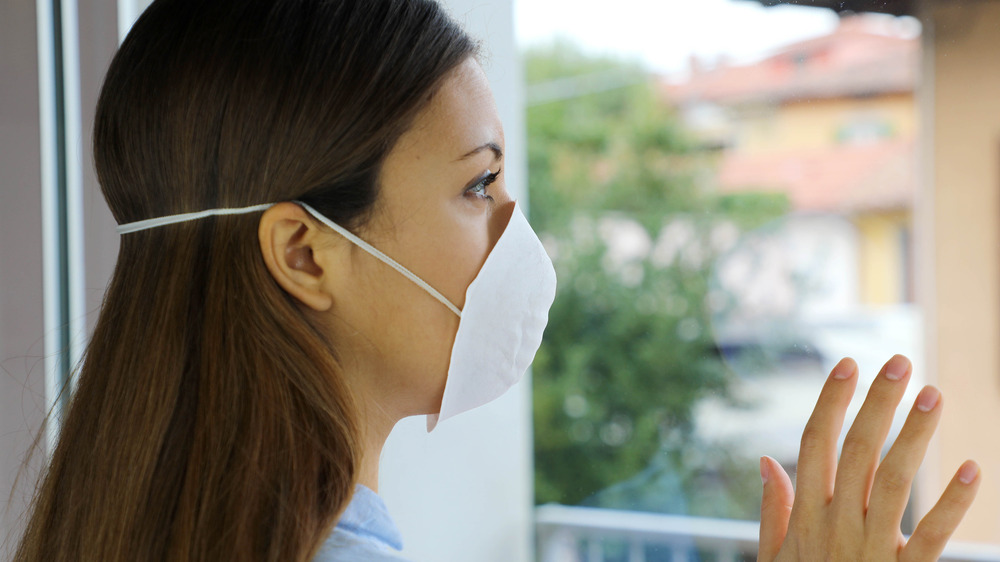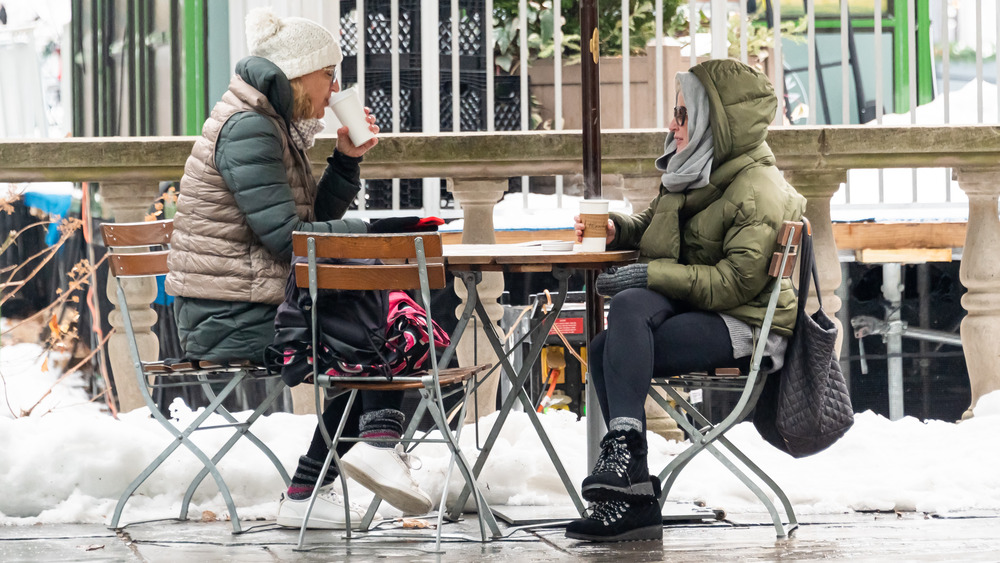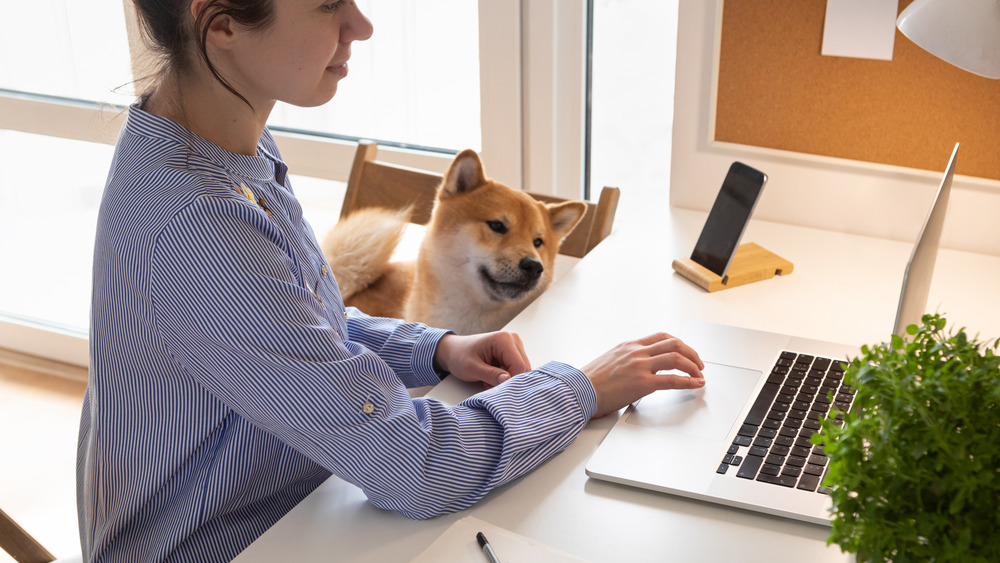How To Cope With Post-Pandemic Reopening Anxiety
As the COVID-19 vaccine becomes more readily available and some of the mask-wearing and social distancing mandates start to be rolled back, it seems the whole world is just panting to get back to life as we knew it circa 2019. Everyone seems to be talking about how they can't wait to see all their friends, go out to bars and restaurants, or even get back to school or work.
What if you're just not feeling it, though? After a year or more of keeping to yourself, interacting only within your "bubble" or via virtual encounters, you might feel like you've forgotten how to do the social thing. It's also quite likely that after a year of fear, it may be difficult to trust that a shot (or two) in the arm is all that's needed to keep you safe in a crowd. As Bay Area public radio station KQED notes, re-opening anxiety is starting to creep in around the edges — a dark cloud threatening to rain on the post-pandemic picnic.
Get the facts
If your anxiety about going out of the house and back into the "new normal" swing of things stems primarily from concerns about the virus itself, it might help you to feel better to stay as well-informed as you can. You can take your cues from the CDC recommendations and keep abreast of all the positive news coming out of the ever-expanding vaccination efforts, and you can also prepare yourself for any specific events that may be on your horizon. As psychotherapist Perri Shaw Borish, founder of Whole Heart Maternal Mental Health, told Good Housekeeping, "If you are anxious about going back to particular places, understanding their COVID protocols is important to feeling safe."
What's more, you can go above and beyond to take steps to protect yourself such as carrying your own hand sanitizer and double-masking. While we may have come to depend on the various businesses and venues we patronize to take the lead in keeping us safe, as they relax their restrictions, there's no obligation for us to do likewise if we're still feeling a bit nervous about the possibility of infection. No shame in being a bit of a germophobe, after all, when you've got nothing to lose but your health.
Go at your own pace
Baby steps, that may be what's needed to get you back up to speed with your life as you wish to be living it. San Francisco psychotherapist Ken Stamper tells KQED that rushing back into social activity after a year of near-isolation is akin to going to an all-you-can-eat buffet after you've been fasting — you might pile up your plate, only to find that your eyes are bigger than your stomach. Under present circumstances, as he advises, "You have to listen to yourself when you're full and not push yourself too far. And you might get full pretty quickly right now."
Rather than rushing right out and doing "all the things," Stamper says it might be best to just build up gradually to your pre-pandemic level of activity. "You might start," he suggests, "by just going out to a restaurant for an hour and being with someone that you feel safe with, and limiting it to a certain amount of time."
Say no to FOMO
While media (social and otherwise) seems to want to portray us as a nation of super-social birds of a feather who can't wait to start flocking together, this doesn't apply to everyone. If you're not dying to get together with all your friends — or perhaps you don't even have a bunch of friends — you're hardly alone in this. Not to mention, despite all the wishful rug-sweeping, it's important to remember, even if the virus disappeared tomorrow, that wouldn't erase everything that happened over the past year-plus. Perhaps you lost a loved one to the virus or your own health was impacted, or maybe you lost a job and are now struggling to pay your bills. If you're hurting, you're probably not ready (or able) to go out and party.
Your thoughts, needs, and worries are all perfectly valid, and you need to cope with your own situation in whatever way works best for you. If you have the option to continue to work or study at home, there's no reason not to do so. If you choose not to socialize, your real friends will understand. (If they don't, new bestie adoption's an option.) As Brit + Co points out, one valuable lesson to come out of the past year is that spending time alone can be both satisfying and empowering, and there's no need to let the world come rushing back into your private space unless and until you wish to do so.



